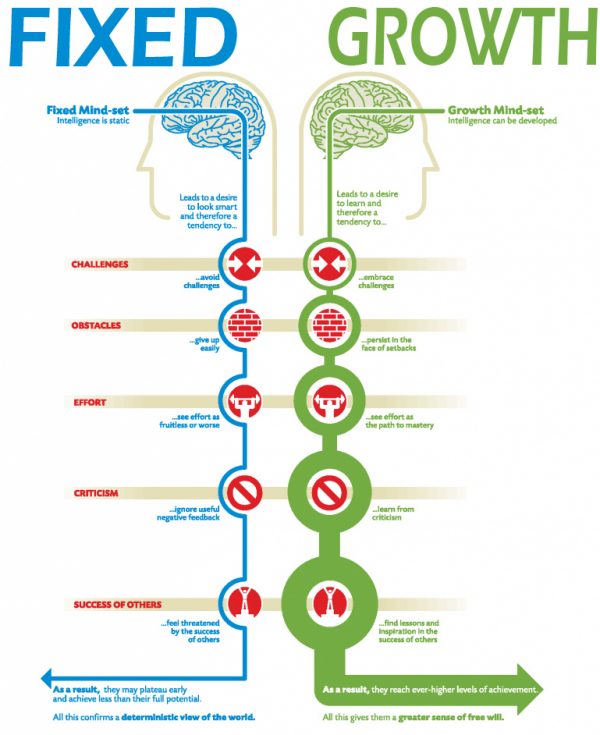…a person’s true potential is unknown (and unknowable)…
For twenty years, my research has shown that the view you adopt for yourself profoundly affects the way you lead your life. It can determine whether you become the person you want to be and whether you accomplish the things you value.
Believing that your qualities are carved in stone — the fixed mindset — creates an urgency to prove yourself over and over. If you have only a certain amount of intelligence, a certain personality, and a certain moral character — well, then you’d better prove that you have a healthy dose of them…
Every situation calls for a confirmation of their intelligence, personality, or character. Every situation is evaluated:Will I succeed or fail? Will I look smart or dumb? Will I be accepted or rejected? Will I feel like a winner or a loser?
There’s another mindset in which these traits are not simply a hand you’re dealt and have to live with, always trying to convince yourself and others that you have a royal flush when you’re secretly worried it’s a pair of tens. In this mindset, the hand you’re dealt is just the starting point for development. This growth mindset is based on the belief that your basic qualities are things you can cultivate through your efforts…
Do people with this mindset believe that anyone can be anything, that anyone with proper motivation or education can become Einstein or Beethoven? No, but they believe that a person’s true potential is unknown (and unknowable); that it’s impossible to foresee what can be accomplished with years of passion, toil, and training.
At Microsoft we’ve been trying to develop what we describe as a learning culture. Stanford University psychologist Carol Dweck wrote a famous book called Mindset, which shares a simple concept. Take two schoolchildren: one has great innate capability but is a know-it-all; the other has less innate capability but is a learn-it-all. You know how the story ends: the learn-it-all does better than the know-it-all. And that applies to CEOs, to companies and to company cultures.The goal is to adopt that growth mindset and use it to develop a deeper sense of empathy, so that you can create those products and services that meet the unmet, unarticulated needs of your customers.

